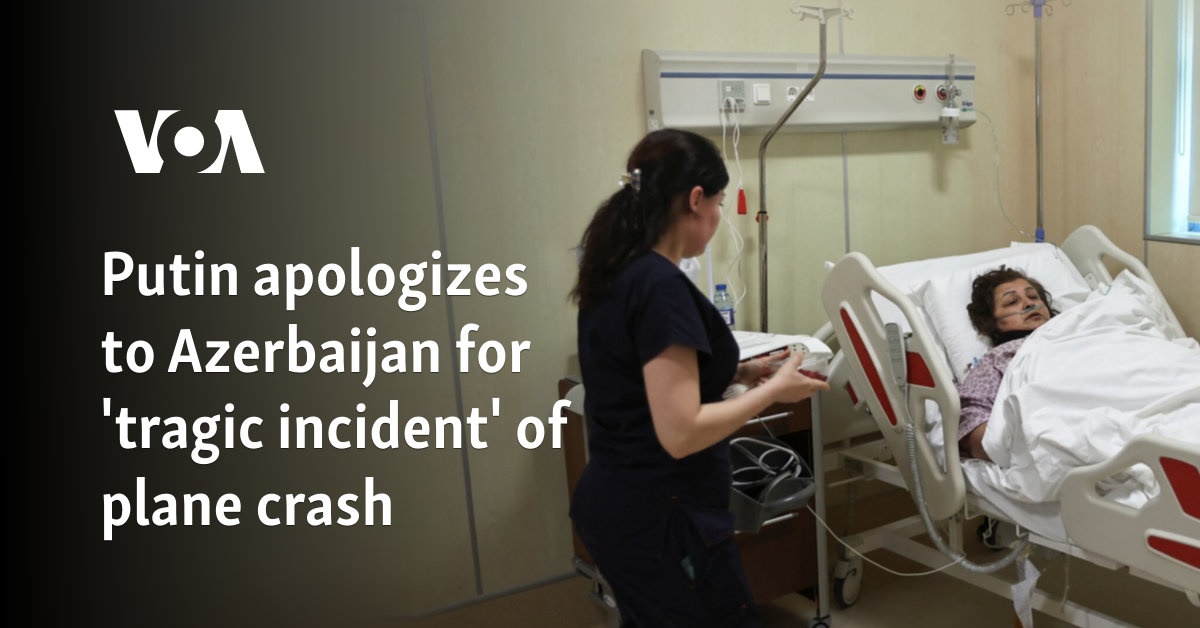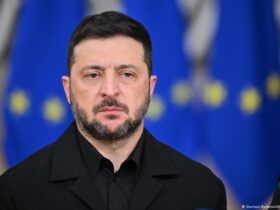
Russian President Vladimir Putin apologized to his Azerbaijani counterpart on Saturday after an Azerbaijani airliner crashed in Kazakhstan in what he called a “tragic incident”, killing 38 people.
The Kremlin said in a statement that a Ukrainian drone strike on Wednesday caused firing from air defense systems near Grozny, the regional capital of the Russian republic of Chechnya, as the plane attempted to land. It stopped short of saying that the plane was shot down by Russian air defense forces.
According to the Kremlin readout of the call, Putin apologized to Azerbaijani President Ilham Aliyev “for the fact that this tragic incident occurred in Russian airspace.”
The plane was flying from Baku, the capital of Azerbaijan, to Grozny when it turned towards Kazakhstan and crashed while trying to land. There were 29 survivors.
On Friday, a US official and an Azerbaijani minister issued separate statements blaming an external weapon for the crash.
Friday’s assessments from Rashan Nabiyev and White House national security spokesman John Kirby echoed assessments by outside aviation experts who blamed the crash on Russian air defense systems responding to the Ukrainian attack. Neither Kirby nor the Azerbaijani minister directly addressed the statements blaming air defenses.
Kirby told reporters on Friday that the US has seen “some early indications that certainly point to the possibility that this jet was shot down by Russian air defense systems,” but he cited the ongoing investigation. He declined to elaborate.
Azerbaijan’s Minister of Digital Development and Transport Nabiyev told Azerbaijani media that “preliminary conclusions by experts point to external influence,” as evidenced by witness testimony.
Passengers and crew who survived the crash told Azerbaijani media that they heard loud noises in the plane as it circled over Grozny.
Dmitry Yadrov, the head of Rosaviatsiya, Russia’s civil aviation authority, said on Friday that as the plane was preparing to land in Grozny in deep fog, Ukrainian drones were targeting the city, prompting authorities to close the area to air traffic. Fell.
Yadrov said that after the captain made two unsuccessful attempts to land, he was offered other airports, but he decided to fly across the Caspian Sea to Aktau in Kazakhstan.
He did not comment on statements by some aviation experts who had said that holes seen in the rear of the plane suggested it could have been vulnerable to fire from Russian air defense systems.
Earlier this week, Rosaviatsiya cited unspecified preliminary evidence showing that the pilots had diverted the plane to Aktau after a bird strike caused an emergency situation in the plane.
In the days following the crash, Azerbaijan Airlines blamed “physical and technical interference” and announced the suspension of flights to several Russian airports. It did not say where the interference came from or give any other details.






Leave a Reply